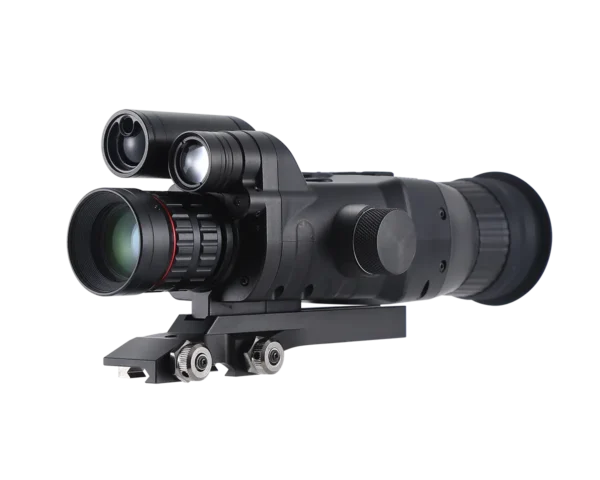Can Waterproof Night Vision Telescopes Survive Heavy Rain?
发布时间:Ağustos 6, 2025 分类:Blog 浏览量:1472
Night vision telescopes are indispensable tools for many professionals and outdoor enthusiasts, but what happens when they’re exposed to extreme weather, particularly heavy rain? Waterproof night vision telescopes are marketed as durable and capable of withstanding adverse conditions, but do they really live up to the claim in the long run? Let’s explore how these devices perform under wet conditions and what makes them reliable in such scenarios.
Pain Points When Using Night Vision in Heavy Rain
1. Water Damage to Internal Components
Given their intricate design, night vision telescopes not only house delicate electronics but are also highly vulnerable to water exposure, which can consequently cause severe internal damage and potentially lead to complete system failure.The risk increases when devices are not truly waterproof or fail to meet industry standards.
2. Condensation Issues
Even if a night vision scope is advertised as waterproof, condensation can build up inside the lens or optics if the seals are compromised. This fogging effect limits visibility, making it harder to view through the scope during critical moments.
3. Reduced Performance in Wet Environments
When used in heavy rain, standard night vision systems may experience a reduction in performance. Waterproof designs are essential to maintain the system’s sensitivity, clarity, and range even in damp conditions.
4. Costly Repairs and Replacements
If your night vision telescope is not equipped to handle heavy rain, water damage may result in costly repairs. Many consumers fail to understand the importance of selecting a fully waterproof night vision telescope.

How Waterproof Night Vision Telescopes Overcome These Challenges
Waterproof night vision telescopes are specifically designed to handle harsh weather, including rain, snow, and humidity. Here’s a closer look at the key features that make these devices a reliable choice:
1. IP Rating for Waterproofing
One of the primary factors determining whether a night vision scope can survive heavy rain is its IP (Ingress Protection) rating. This rating indicates how resistant the device is to dust, dirt, and water. An IP67 or higher rating ensures the device can be submerged in water for a certain period (typically up to 30 minutes) without internal damage.
2. Nitrogen or Argon Purging
Many high-quality waterproof night vision telescopes are purged with nitrogen or argon gas. This gas prevents condensation from forming inside the device by maintaining a consistent internal pressure and humidity level. The result is a fog-free view even during humid or rainy conditions.
3. O-Ring Seals for Maximum Protection
O-ring seals are used in the construction of waterproof night vision telescopes to protect critical internal components from water ingress. These seals provide an airtight, watertight barrier, ensuring the device remains safe from exposure to moisture.
4. Ruggedized Housing
The housing of a waterproof night vision scope is often made of materials like aluminum or reinforced plastic that are both lightweight and durable. These materials not only withstand the physical impact but also help protect against corrosion caused by prolonged exposure to rain.
5. Enhanced Optical Clarity
To ensure optimal performance, the lens and optical elements of waterproof night vision telescopes are strategically coated with special anti-reflective and waterproof coatings. These advanced coatings not only minimize water droplet accumulation but also significantly enhance image clarity, even during heavy rainfall.
Product Comparison and Performance Data
Let’s compare the performance of two leading waterproof night vision telescopes based on their features, certifications, and real-world performance data:
| Feature | Model A (IP67 Rated) | Model B (IPX6 Rated) |
|---|---|---|
| Waterproof Rating | IP67 | IPX6 |
| Fog Resistance | Nitrogen Purged | No |
| Lens Coating | Anti-reflective, waterproof | Waterproof only |
| Operational Depth | 1 meter for 30 minutes | No submersion |
| Durability | High | Medium |
Conclusion:
Yes, waterproof night vision telescopes can certainly survive heavy rain, but not all are created equal. Look for a device with a high IP rating, nitrogen purging, and robust seals for the best protection against water damage. These features ensure that the scope remains functional and clear, no matter the weather conditions. With the right choice, you can rely on your night vision scope to perform when you need it most.For more on optics durability, check out our product category.

